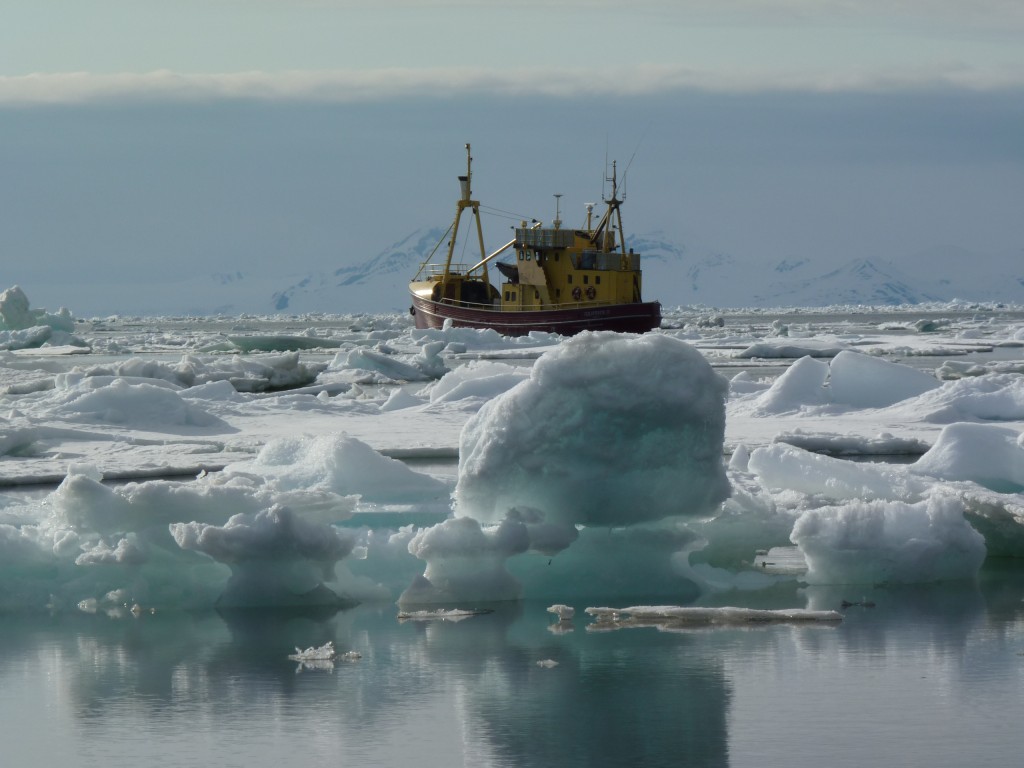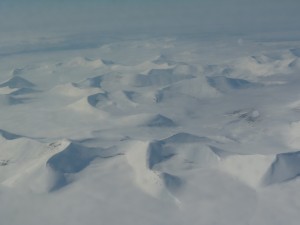Search Results for Tag: Oil
Polar protection measures put on ice
The International Maritime Organisation (IMO) has postponed until 2013 the development of environment protection guidelines to regulate shipping in polar waters. Environment groups have repeatedly expressed concern about the grave risks posed by increased shipping to the fragile ecosystems in the Arctic.
![]() read more
read more
Oil from the Arctic: Is it time for an Arctic Treaty?
Given the increased interest in drilling for oil and gas in the Arctic as the area becomes more accessible in a changing climate, concern is also growing about the dangers an accident could pose to the fragile environment of the “high North”. An editorial in the publication NATURE argues that we need a binding agreement like the Antarctic Treaty to protect the Arctic from pollution.
![]() read more
read more
Greenpeace boss risks jail to stop Arctic drilling

You can’t get much higher-profile than this. The International Executive Director of Greenpeace, Kumi Naidoo, has scaled the controversial Arctic oil rig currently 120 km off the coast of Greenland. He is breaching a court injunction against his organisation imposed by a Dutch court a week ago at the request of Cairn Energy, the company operating the oil platform. The court order, sought by the company a week ago after 20 Greenpeace activists were arrested for stopping the rig operating, means a 50,000 Euros a day fine and the risk of jail for the Greenpeace chief.
![]() read more
read more
Arctic race against time
I have had an interesting and informative couple of days here in Trondheim, including a visit to the SINTEF laboratories, opened in 2005 on the water-front in Trondheim, so that they have direct access to sea water for their experiments.

This is the view of the fjord from inside the lab. It was a very wild weather day when we went there yesterday. There is a fine view of the water from the lab, and yesterday was unusually windy, so some of the scientists were even taking photos of the waves crashing over the breakwater – photos through the window, though. It was too stormy to open a window.

It was high tide and the wind was blowing strongly right in to shore. I actually like windy weather and have enjoyed watching waves crash on the shore in a lot of places. Apparently this is rare here, because Trondheim is comparatively sheltered in the fjord.
This is a lab dedicated to finding out all about oil and how it works in the environment. There is an “oil library”, with samples of different oil types from all over the world, so that the scientists can figure out how different types of oil behave in contact with sea water and test methods of dealing with oil spills.

Oil exploration and drilling are a “given” to this organisation. Their business is not to question the wisdom of, for example, moving north, but to find out about possible environmental impacts and develop technology for oil spill response.
This laboratory received a lot of funding from Statoil, so there is a clear interest in making oil exploration possible.
I have learnt a lot about the problems of oil spill response and the different technologies available over the past few days.

(test basin where oil is added to seawater)
There were quite a few experts from the USA at the meeting, the Canadian coastguard was represented, and of course plenty of Norwegian oil experts. People said they’d like to see more Russian involvement next time as they are a key player in the Arctic.
Summing up the presentations and sentiments I experienced here I’d say in spite of the Deep Water Horizon catastrophe a year ago, oil exploration in Arctic regions will still go ahead. There is a strong awareness of the challenges posed and the danger of an oil spill either from oil exploration or increased shipping in remote, icy waters. Oil in ice is a big research topic. Of course the DWH accident has drawn public and political attention to the risks attached especially to deep-sea drilling.
I have the strong sense – and quite a few of the experts I talked to agreed – that this is a race against time. Oil and gas exploration are already moving northwards. “Accidents will happen” is a phrase used by a few speakers. Can the technology to prevent and respond to a spill keep pace? The other fact I saw confirmed was that there is a lack of “baseline data” for Arctic areas, from charting to ecosystems. And climate change is changing the Arctic at a very fast pace, making it more difficult still to predict how increased shipping, oil and gas exploration will affect the environment.
Oil in icy waters

„Spill response for the future“ – that’s the title of a conference that has brought me to Trondheim in northern Norway.
There\’s still a pile of snow on the runway – but it\’s hardly recognizable as such as the winter gradually fades even up here.

At the Arctic Frontiers meeting in January, several people said to me in interviews it was just a matter of when and not a matter of if we would see another oil accident of one sort or other in northern waters. Just shortly afterwards, an Icelandic ship ran aground at the mouth of the Oslo Fjord, spilling fuel into the Ytre Hvaler marine park, Norway’s only natural marine reserve.
Weather conditions, ice and the cold temperature of the water make oil accidents harder to deal with up here. As climate change is opening up Arctic areas to shipping, oil and gas exploration, the chances of an oil spill in remote and extreme conditions will rise. There are still clumps of oil in Prince William Sound in Alaska, where the Exxon Valdez ran aground in 1989.
SINTEF is a Scandinavian independent research organisation, with its headquarters here in Trondheim. Over the next couple of days, experts here will be discussing the challenges of extending oil and gas development northwards and presenting technologies to respond to oil spills. On Friday I’ll be paying a visit to the laboratories. I’ll keep you posted.
A year after the Deep Water Horizon catastrophe in the Gulf of Mexico, it will also be interesting to hear from experts involved in trying to clean up and limit the damage.






















Feedback